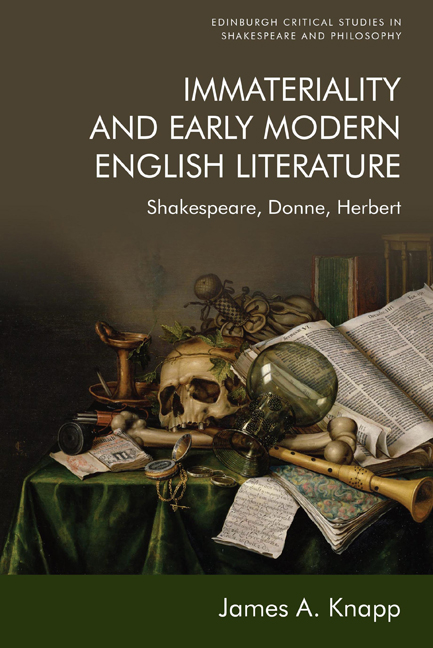Coda
Published online by Cambridge University Press: 10 October 2020
Summary
In The Five Senses, Michel Serres describes writing as the human activity poised on the precipice between the material and immaterial:
The female embroiderer, sewer, spinner or even surgeon operating under a microscope, still stitch together seams with loose links, compared with the fine knots and intricate paths of writing. They have their hands in hard things while she who writes immerses her hands in the soft sign. A link so subtle that it is attached to nothing, a knot so tenuous that it is already passing into another order.
Such a passage could have been found in the pages of the early modern works I have considered in this study. Offering advice for the cultivation of Christian virtue at the turn of the seventeenth century, for example, the Calvinist future Archbishop of Canterbury George Abbot urged attention to the interaction of the physical body and immaterial soul:
In this, because [God] hath made all, he doth require all, our selues and all ours, the bodie and the soule, the inward and the outward, the sensible and inuisible; although especially the heart and immateriall soule, yet ioyntly the hand, and action from without, yea and the wealth also, that euery part may recommend a dutie to the authour. And for these externall matters, he hath giuen vnto man not onely members, as in prayer his hands to be lifted vp, his breast to be beaten on, his knees to be bowed, his eyes to be bedewed, that so compunction in the mind may the more be stirred vp …
In the previous pages, I have explored this abiding early modern interest in immateriality as the necessary correlate to material experience. My focus has been on what Elizabeth Grosz has termed ‘extramateriality’, ‘the inherence of ideality, conceptuality, meaning, or orientation that persists in relation to and within materiality as its immaterial or incorporeal conditions’. Grosz argues that the material and immaterial need to be ‘thought together’, an enterprise undertaken by the English writers working in the decades around the turn of the seventeenth century that I have considered here.
- Type
- Chapter
- Information
- Immateriality and Early Modern English LiteratureShakespeare, Donne, Herbert, pp. 391 - 393Publisher: Edinburgh University PressPrint publication year: 2020



